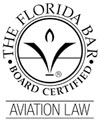EXCERPT FROM BOEING MODEL 787-8 FAA EMERGENCY AIRWORTHINESS DIRECTIVE:
DATE: January 16, 2013
AD #: 2013-02-51
Emergency airworthiness directive (AD) 2013-02-51 is sent to owners and operators of The
Boeing Company Model 787-8 airplanes.
Background
This emergency AD was prompted by recent incidents involving lithium ion battery failures
that resulted in release of flammable electrolytes, heat damage, and smoke on two Model 787-8
airplanes. The cause of these failures is currently under investigation. These conditions, if not
corrected, could result in damage to critical systems and structures, and the potential for fire in the
electrical compartment.
FAA’s Determination
We are issuing this AD because we evaluated all the relevant information and determined the
unsafe condition described previously is likely to exist or develop in other products of the same type
design.
AD Requirements
This AD requires modification of the battery system, or other actions, in accordance with a
method approved by the Manager, Seattle Aircraft Certification Office (ACO), FAA.
Interim Action
We consider this AD interim action. As the investigation progresses, we might determine that
additional action is necessary.
With these words, the FAA has grounded the most revolutionary new airliner in the skies – the Boeing 787. While only a relatively few (approximately 50) of the new aircraft have been delivered, most to foreign airlines and about 6 to United Airlines, the grounding is unprecedented in modern times. Historically, all new airliners have been subject to growing pains, and over time the bugs are resolved. But never has such drastic action been taken by the FAA. The 787 is the first airliner developed by Boeing with extensive participation by an international development team. The 787 team consists of Italy, Canada, Australia, Japan, United Kingdom, France, Germany, Sweden, and Korea. Japan supplies Boeing with the lithium ion batteries (and a lot more) that appear to be the cause of the grounding. Is it possible that the manufacturing quality control standards and processes that have made Boeing the premiere designer and builder of modern airliners cannot be maintained with an extensive international development team? Is documentation from the Japanese battery supplier, which presumably certifies that the battery meets every Boeing specification and has passed every test required by Boeing, enough to assure the same quality as if Boeing certified and tested the battery itself? Are there implications with regard to other systems and structures in the aircraft which were manufactured by Alenia Aeronautics (Italy) or Messier-Dowty (France), for example. Probably not, and hopefully the investigation prompted by the battery fires will determine a root cause related to something other than quality control. But, what if? Personally, I remain a Boeing loyalist. If it's not Boeing, I ain't going.

 January 17, 2013 in
January 17, 2013 in 


